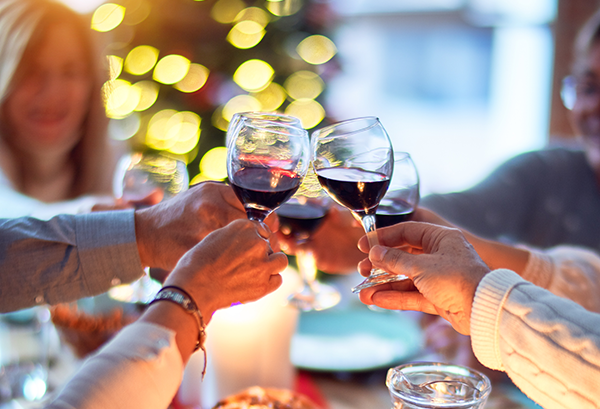Individual Counseling Insights brought to you by California Psychotherapeutic Resources, Inc.
If there is one thing that is the living definition of “bittersweet,” it would have to be holiday time when you’re missing a loved one. Holidays, whether it’s Thanksgiving, Christmas, Hanukkah or even New Year’s Eve, are typically times of celebration and festivity. But “typical” can easily disappear in an instant. An adult child can get married, move across country and spend a holiday every other year with their new in-laws. A dear friend or relative you always spent the holiday with may move away. Most difficult to deal with, someone’s spouse or partner may die and leave them alone.

Suddenly, at a celebration you may be filled with joy one instant and feel unbearably sad a moment later. Writing for EstherPerel.com, Esther Perel and Mary Alice Miller point out that “Feeling lonely around the holidays can make us feel as if something is wrong with us. Everybody else seems to know how to be happy, how to be together, how to be festive, merry, and bright. But feeling lonely around the winter holidays is extremely common. And even more so during this year of isolation.”
Part of the sadness you may feel during the holidays seems to be an inevitable part of aging. You may simply miss a parent who has died, with the holidays evoking memories of a time long past. Or you may remember a former lover with whom you shared some wonderful celebrations. Or you may simply miss the joy of seeing your young children open presents, a time in your life that seemed magical but is now gone. It also doesn’t help to see images of friends posted on social media, with every photo portraying unalloyed joy.
Fortunately, the problem of loneliness around the holidays is not only well documented but also well understood. Perel and Miller say that there are innumerable ways to combat the sadness of the season: “Relationships are often the strongest protective factors to keep us tethered to ourselves in times of crisis. This holiday season is an opportunity to create new traditions that challenge the DNA of our society that says we have to do it all alone. This is a time to practice creative collectivism instead of Darwinian survival of the fittest. Send cards. Write letters. Acknowledge the people we think and care about by actually picking up the phone and calling them. Cook for someone; drop it off at their house. Foster a pet. Start an indoor garden. Take a long walk and say hello to those we pass. Identify one or two people in our social sphere and create an oath of accountability to cook healthier together. Cook with each other on FaceTime. Support a beloved local restaurant or small business by purchasing gift cards and sending them to friends. Schedule monthly check-ins with loved ones and put it on both calendars. Join a virtual group, film forum, or a newspaper’s book club. Volunteer. Reach out to a nursing home to see if anyone wants to talk by phone. If you’re in a city, go listen to street musicians. Join a fan club. Do a live virtual exercise class.”
At the same time, it is important to acknowledge and validate any sadness you feel – after all, missing a friend who has died is a more than legitimate source of sadness. Grieving and all its messy related feelings is not something to ignore but to experience — grieving is part of the healing process. So, give yourself the freedom to feel sad or lonely but do not dwell in that space — turn to the tips above to give yourself a respite and rediscover the joy of the holidays.
If you’re looking for more creative ideas to counter any bitter feelings you may have, see the full Perel and Miller article — it includes many comments from people who offered hopeful messages through their social media channels.